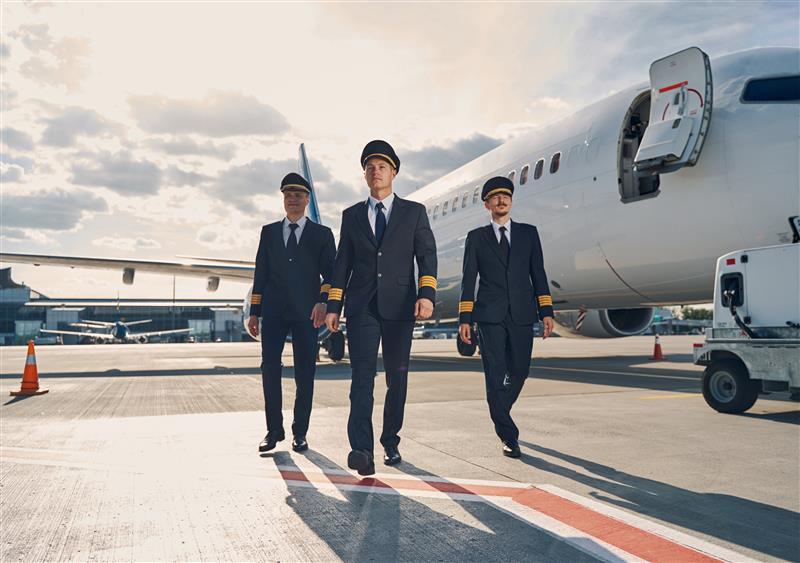The miracle of flight connects people around the world, fostering economic development and providing access to resources such as medicine, life-saving equipment during disasters, and connections to global economic resources. Despite these benefits, aviation industry actors, including airlines, fixed-base operators, maintenance and repair organizations, and consultants, are required to focus on their corporate social responsibility (CSR) in the conduct of their business if they are to earn the right to prosper in the information age.
Besides, the CSR practices in the airline industry are being reshaped by changing regulations, influenced by initiatives like the Carbon Offsetting and Reduction Scheme for International Aviation (CORSIA). To explain the details of corporate social responsibility in aviation, Abdelmagid Bouzougarh, Chief Executive Officer of Aerviva, an international aviation recruitment consultancy, provides insights into how corporate responsibility affects aviation businesses in 2024.
“Good CSR has become increasingly important in hiring practices, because team members under the age of 44, 63% donate to charities, 43% actively volunteer or are members of a community organization, and 52% have signed petitions,” Bouzougarh said. “These individuals want to work for companies that inspire them to uphold good business practices, so their social conscience is in harmony with their career choices.”
According to Bouzougarh, “From the company’s perspective, addressing these expectations involves enhancing everyday welfare, fostering community engagement, and implementing inclusive practices. Prioritizing health, safety, and workplace standards can further strengthen these efforts, creating an environment where people feel valued and socially aligned with their organization.”
However, people’s expectations go beyond just internal company culture. For example, there are increasing concerns about climate change among potential candidates and passengers alike. According to the U.S. Pew Research Center, two-thirds of U.S. adults say the country should prioritize developing renewable energy sources. Bouzougarh adds that aviation accounts for 2.5% of global CO₂ emissions, but it has contributed around 4% to global warming to date.“As highlighted by EASA, political concerns for climate change have dramatically affected the aviation industry, with regulators limiting the use-case scenarios for airline transport and airport infrastructure becoming increasingly restricted,” Bouzougarh said. “The answer to this problem used to be Sustainable Aviation Fuel (SAF); however, there is an increased understanding that SAF might be an attempt to greenwash the industry.”
According to Bouzougarh, airlines, Original Equipment Manufacturers (OEMs), and businesses need to be forward-looking in finding solutions for 2050 for their Corporate Responsibility Management (CRM), so that their commitments are viewed more genuinely. Beyond the challenging task of re-engineering aircraft beyond combustion-driven jet turbines, aviation businesses have considered their sustainability practices at every level. This includes the adoption of new technologies, such as electronic flight bags (EFBs), digital checklists, crew communication apps, or digital maintenance logs, to reduce the amount of single-use paper in flight planning and operations.
“Beyond sustainability, aviation provides important capabilities in missions of public interest, including life-saving first aid after disasters, and transportation of aid workers to disaster locations,” Bouzougarh said. “The ability to volunteer pilots and aircraft for these missions provides companies with a fantastic opportunity to save lives and be good community actors.”
Bouzougarh added that there are a number of established organizations specializing in coordinating the efforts of airlines and pilots for charity airlift operations. Charity airlift organizers and specialists like Airlink are partnered with more than 65 companies, including airlines, Maintenance, Repair, and Overhaul providers (MROs), consultancy firms, media, and aircraft lessors, allowing the charity to transport over 11,000 responders and approximately 12 million pounds of humanitarian aid by air since 2010. This initiative has saved nonprofits nearly $33 million in air transport costs and directly helped 46 million people worldwide.
“It is difficult to understate the importance of these operations as they can have dramatic effects on the outcomes of lives,” Bouzougarh said. “There is also a considerable benefit in reminding the non-flying general public of the importance of the aviation infrastructure, which will allow for increased cooperation in the future. In other words, aviation plays a vital role in our daily lives, such as transporting cargo across the globe or supporting humanitarian efforts, as mentioned earlier. At the end of the day, we all benefit from it.”
Aviation connects individuals in crisis, destitution, and disaster to opportunity and deliverance. In today’s information age, the impact of both negative and positive actors is amplified, meaning that corporations need to take increased consideration of their activities in such areas as environmental commitment, governance and transparency, technological innovations, and others. As legal entities, corporations are akin to people, which requires business leaders to decide if they want to be ‘good people’ and act with virtue in their character. Given the sensibilities of the workforce, the reward for such actions would increase their desirability from a recruitment perspective.

